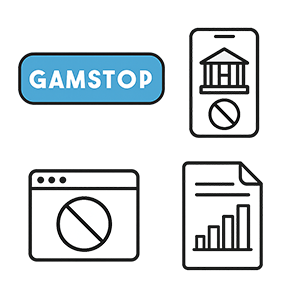Shifting from relying solely on external help to cultivating personal responsibility is crucial in sustaining safer gambling habits. Through everyday awareness and consistent application of smart techniques, players can transform how they approach sports betting. From recognising patterns in behaviour to using tech-based control tools, it’s possible to enjoy the game without risking wellbeing. Whether you’re betting casually or regularly, these practical tips — promoted during responsible gambling week and through initiatives like the coalition for responsible sports betting advertising — offer a framework for healthier engagement. Explore seven essential practices that help you play safer and stay in control. Ever wonder why a price at 2.10 doesn’t guarantee value or how variance can mask risk over a short run? Build your literacy around implied odds, sample size, and market mechanics so you can read lines with confidence—doing this often does more for you than any checklist of responsible sports betting tips.

- Evaluate personal betting behaviour with self-assessment tools
- Set financial and time boundaries before each session
- Use self-exclusion platforms and spend trackers
- Learn to recognise tilt and avoid chasing outcomes
- Talk about your gambling habits with trusted friends
- Monitor debt closely using budgeting applications
- Take deliberate breaks during major sporting events
Tip 1 — Evaluate Your Current Betting Habits
Understanding your own gambling behaviour is the first step towards control. By keeping a journal or using digital apps to track time, frequency, and motivation, bettors uncover unseen triggers and patterns. These insights help reframe risky routines into healthier ones. Reflecting regularly supports long-term change and strengthens decision-making.
Journaling helps many gamblers make sense of recurring urges. By documenting emotions before and after placing bets, players begin to see how non-financial pressures drive their choices.
JonathaDr Henrietta Bowden-Jones, Consultant Psychiatrist, Royal College of Psychiatrists
Structured self-assessment tools empower players to catch behavioural shifts before they escalate. These are among the most effective preventative steps in responsible gambling.
Prof. Richard Tunney, Behavioural Science Lead, University of Nottingham
Tip 2 — Set Clear Budget & Time Limits Before You Play

Controlling exposure to betting environments begins with clear boundaries. Budgeting your bankroll before you wager reduces impulsivity. Setting a fixed timeframe for each session protects mental focus and ensures gameplay doesn’t consume the day. Using tech aids to implement these boundaries boosts consistency and compliance with your personal responsible gambling policy.
- Use timer apps to prompt log-off reminders at planned intervals
- Pre-load betting wallets with your budget and disable top-ups
- Enable account limits directly on bookmaker platforms
- Use financial planner apps to map daily, weekly, or monthly caps
Tip 3 — Use Gambling Blocking, Self-Exclusion & Spend-Tracker Tools

Several UK platforms offer effective digital tools to reduce gambling-related harm. Registering with GamStop or activating self-exclusion schemes blocks access to licensed betting websites. Apps and bank features enable spend tracking, while browser plug-ins restrict gambling-related content. These responsible gambling tools empower users to actively manage impulses and reduce risk.
- Register with GamStop to block all UK-licensed betting sites
- Use bank apps to set merchant block rules on gambling codes
- Install BetBlocker or Gamban to filter online gambling content
- Review gambling history via betting site dashboards
- Enable cooling-off settings directly in bookmaker profiles
Tip 4 — Keep Sport Fun: Avoid Chasing Losses During the Game
Chasing losses turns entertainment into stress. Recognising the urge to recoup money leads to better control. Staying mindful of emotional triggers like frustration, disappointment, or overconfidence is vital. A proactive break or change of activity helps refocus. The real aim is enjoying sport, not reclaiming bets lost.
Chasing losses often stems from a belief that control over outcomes exists — this mindset leads to cycles of harm. Reframing sport as entertainment helps reset expectations.
Liz Karter MBE, Addiction Therapist
When betting stops being fun and becomes reactive, it’s time to pause. Emotional volatility, especially after losses, distorts judgment and increases risk.
Dr Matthew Gaskell, Clinical Lead

Discussing your betting behaviour with close friends or family creates a vital layer of accountability. Others can help spot red flags you may miss. Open conversation reduces isolation and supports change. Honest dialogue encourages responsibility and helps prevent relapse into risky play, especially for those in recovery or under stress.
When people talk to someone they trust about their gambling, shame is reduced and constructive support becomes possible.
Fiona Palmer, CEO, YGAM (Young Gamers and Gamblers Education Trust)
Social connection builds awareness of how habits are evolving. Peer support makes it easier to challenge risky decisions in real time.
Anna Hemmings, CEO, GamCare
Tip 6 — Track Debt Early & Use Money-Management Apps
Monitoring expenses related to gambling is critical for preventing financial instability. Users should record each transaction and link spending insights with bet tracking tools. Dedicated financial apps make it easier to stay within limits and identify trends. When paired with gambling blocks, these apps create a proactive system of control and reflection.

- Monzo – Includes gambling block and spending insights with live notifications
- Emma – Tracks subscriptions, categories, and highlights risky financial habits
- Snoop – Offers budgeting alerts and detects recurring betting transactions
Tip 7 — Take Cooling-Off Breaks Around Major Sports Events
Large tournaments can heighten emotional investment, encouraging riskier betting. Scheduling breaks before and after such events helps reduce pressure. Temporary logouts or weekend pauses allow reflection and better control. These structured time-outs, combined with digital detox periods, form part of a long-term strategy for esports betting responsible gaming.
Time-outs are effective because they create distance between emotion and action. This space is often all it takes to interrupt dangerous cycles.
Dr Steve Sharman, Research Fellow, Queen Mary University of London
Big sporting occasions can act as triggers. Taking planned breaks makes a real difference in sustaining control and reducing risk.
Heather Wardle, Associate Professor, London School of Hygiene & Tropical Medicine
More Information Related
This article draws upon reputable research, authoritative health services, and peer-reviewed advice from professionals specialising in responsible gambling strategies across the UK. Verified studies, clinical advice pages, and digital harm-reduction tools were referenced to ensure the accuracy and relevance of every section. Below is a full list of referenced sources, including recognised educational material, clinical insight, and community discussions that offer valuable perspectives on gambling-related behaviour and prevention strategies. Wikipedia and Reddit forums also provided useful context on public perception, terminology, and lived experience of gambling control measures in February 2026.
- Royal College of Psychiatrists – Supporting Gambling Practices https://www.rcpsych.ac.uk/members/your-faculties/addictions-psychiatry/supporting-addictions-psychiatry-students-and-trainees
- GamCare – Gambling Support Services and Helplines https://www.gamcare.org.uk/get-support/
- Wikipedia – Gambling Addiction in the United Kingdom https://en.wikipedia.org/wiki/Gambling_in_the_United_Kingdom
- Reddit – r/problemgambling: Lived Experiences & Recovery Stories https://www.reddit.com/r/problemgambling/
- Queen Mary University of London – Problem Gambling and Sports Betting Study https://www.qmul.ac.uk/welfare/money-and-practical-advice/managing-money/gambling-and-gaming/







